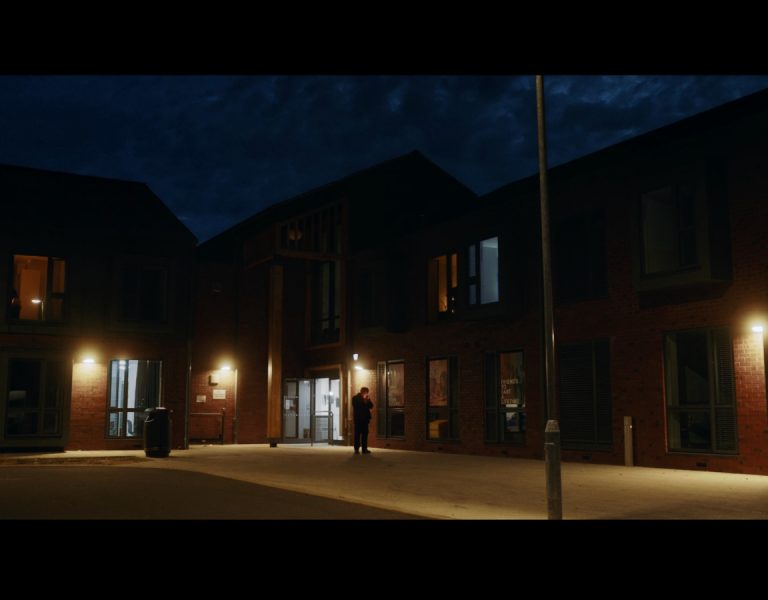HOW DO WE MANAGE?
Tanya Marar ACO reflects on how proper people management is a crucial yet often overlooked skill for directors of photography, and how improving it can boost a team’s output and morale.
I’ve always been amused by the thought that a film set is one crazy social experiment; let’s put tens of people in a room for months, under financial, time and creative pressure, and see what can go wrong. And things go right as they go wrong, and they go wrong in so many glorious ways. In this transient, sometimes even transactional industry, the glaring irony is that it is also a heavily creative and personal one.
In a recent roundtable discussion, a well-established cinematographer brought up a point – that he has had training and education in the technical and creative side of the industry, but never in managing people – which he considered to be a big part of his job, and something he personally struggles with. If one of the biggest names in cinematography finds this to be challenging, isn’t it a problem worth looking into? Who teaches our DPs, our team leaders how to be good managers? We focus on technical work and on our immediate creative relationships, but when do we ever truly learn the nuances of managing a team that might consist of people from different backgrounds, levels of experience and personalities.
With a huge push in the industry to be more inclusive and diverse, this problem becomes more evident. Where are the rows of management books, or the out-of-town management retreats for filmmakers? You read about successful companies and successful management styles and there is a huge emphasis on how to get the best out of people, how to problem solve and how to nurture personalities. It’s something that I can’t help but feel is missing from our department, especially under the high pressure, fast-paced nature of the work. For obvious reasons like family, time and life, it’s not something we can probably invest in, but maybe a certain awareness of the situation can help us become a little more versed in problem-solving on a personal level, not only a creative and logistical one.
Industry-wide issue
It’s easy to overlook the need for good management when a project is short, but the truth is that we often come across the same people over and over in the industry and avoiding managing a situation on one project only serves to push it to the next, it becomes someone else’s problem, and the cycle continues. Thinking of the industry as a whole entity rather than just project based, can be one way of framing these issues so that it’s a collective effort in raising the bar. That is not to say that you’ll always have harmony between everyone, but with issues that can range from the more serious sexual harassment cases and bullying to the less-easy-to-spot aggressive and undermining behaviour, and other general personality disagreements – a team’s output and people’s emotional wellbeing is very much at risk.
We all want that perfect team that gels well and gets along like a family. And that’s why we often find ourselves hiring the same teams over again when they do work. But also like any family, disruptions and discontent can be a huge factor in the dynamics of the camera team. At times, we don’t always get to hire all the people we want. We need to start considering ways of creating better environments for us to all function in. I’m not the only one who has been in challenging, and often as I look back on my career, unnecessary situations. Times that would have benefitted from an HOD to step in and manage. Or I have been myself the HOD that was overwhelmed with a certain situation. It’s quite common for people to feel like they don’t want to burden their DPs with issues as they already have full plates of stress. It’s also common to hear about DPs who knew about issues but were unable to get involved because of their lack of knowledge, time, or experience in how to handle them. We sometimes close our eyes and hope that the issue will course-correct itself. Sometimes it does. Sometimes the best solution is to leave things to the natural ebb and flow of character dynamics.
But what about when it doesn’t? What happens when you don’t provide an open line of communication for members of your team to be able to come speak to you when things are not going well. Or when you don’t spot, intervene, and neutralise a problem as it happens. How do we shift from hoping that things work out on their own, to taking responsibility for making things work out under our management – all the while juggling the creative pressures and our own life outside of the film set. As in the rush of a day, we sometimes forgo rehearsals and setting of marks in hopes that it will save us time, only to end up doing more takes than we would have needed if we had just taken a few moments to set them. The same thinking goes for interpersonal problem-solving. Taking the time to resolve sticky issues as they are unfolding will save a lot of time and stress later than if they were otherwise ignored and left to fester.
Basic human psychology tells us that when we sense danger our defences go up. When we have to protect ourselves from each other, we are not focusing on the work, and the whole team suffers. It’s obvious that a healthy, happy team will deliver better results. The film industry is rich in people with sharply different skills and potentially disruptive differences in personality. And for the most part it’s often a matter of guidance. Don’t we all deserve the time and effort to be pointed in the right direction, even when we haven’t made the best decisions?
Improving life on set
I was recently speaking to an entrepreneur friend of mine who is well-versed in the language of management, and he was shocked at discovering the weakness that camera teams have in management practices. We’ve all heard of or have been in toxic environments, and the advice often given in these situations is to just try to get through them. But where does our long-term emotional well-being come into consideration? Spending so much time away from home and on set, shouldn’t we start to care about fixing those environments and on nurturing teams where problem solving and understanding becomes central to our success?
It’s not easy to have an empirical overview of the management situation in the industry as no comprehensive study has ever been conducted (as far as I am aware), but it’s clear to me from anecdotal stories how many people suffer at work due to bad or unaware managers and proper guidance.
Google researchers applied a method to discover the secrets of effective teams at Google. Code-named Project Aristotle – a tribute to Aristotle’s quote, “the whole is greater than the sum of its parts” the goal was to answer the question: “What makes a team effective at Google?” With a survey of 80,000 managers with in-depth studies of a few top performers, there is one quality that sets truly great managers apart from the rest. Average managers play checkers, while great managers play chess. In checkers, all the pieces are uniform and move in the same way; they are interchangeable. You need to plan and coordinate their movements, certainly, but they all move at the same pace, on parallel paths. In chess, each type of piece moves in a different way, and you can’t play if you don’t know how each piece moves. More importantly, you won’t win if you don’t think carefully about how you move the pieces. Great managers know and value the unique abilities and even the eccentricities of their team members, and they learn how best to integrate them into a coordinated plan of attack. I wonder if there is something to learn from these findings and implement them into our own structures.
Making of a manager
Being a successful DP is no guarantee that someone will be adept at managing others. On a universal level, the talent required to be a great manager is actually quite rare. The research reveals that about one in 10 people possess the talent to manage, so let’s all take some comfort in that fact if we aren’t natural-born managers. But that doesn’t mean we cannot become them. The study finds that great managers motivate team members to take action and engage them with a compelling vision, they have the assertiveness to drive outcomes and the ability to overcome adversity and resistance, they create a culture of clear accountability, they build relationships that create trust, open dialogue, and full transparency and they make decisions based on productivity, not politics.
Team effectiveness according to the Google study measured the following: psychological safety, dependability, structure and clarity, meaning and impact. And while these dynamics of effective teams are probably very different in an organisation than in a camera team, there can be parallels. Of those five measures I find the most commonly problematic on a film set are psychological safety and dependability. What do we mean by psychological safety: are mistakes in the team going to be held against you? Are members of the team able to bring up problems and tough issues? Is it easy to ask other members of the team for help? Are we all going to support each other? And if we don’t have a captain at the helm of the ship making sure that these things are implemented, and that the team feels safe and secure, then nobody will, and the team and the work suffer.
The importance of mentorship cannot be overstated either. With more people entering the industry every year, the idea of having to figure it out alone can be daunting and difficult. Many mentorship schemes have been launched by various universities and associations, but it does sometimes feel like they are few and far between. It’s important for everyone to remember their difficult paths and how those paths could have been made easier if they had someone to guide them through.
And so I put forward the question to all of us in managerial positions in the camera department. Where do our responsibilities lie and how can we work on ourselves to improve our management skills and create a healthy and enjoyable working environment. Until there are better resources and structures in place, as HODs we should take some time to train ourselves in how to can better show up for the team and provide a supportive, communicative space that is based on problem-solving and conflict resolution, and to dedicate some of time to mentor those coming up in the industry.
Our push to be more diverse and inclusive needs to be met both with a push to provide better training and support, with a parallel push to be more competent in dealing with the nuances of interpersonal relationships and team management. As they say, good leaders must first become good servants.










